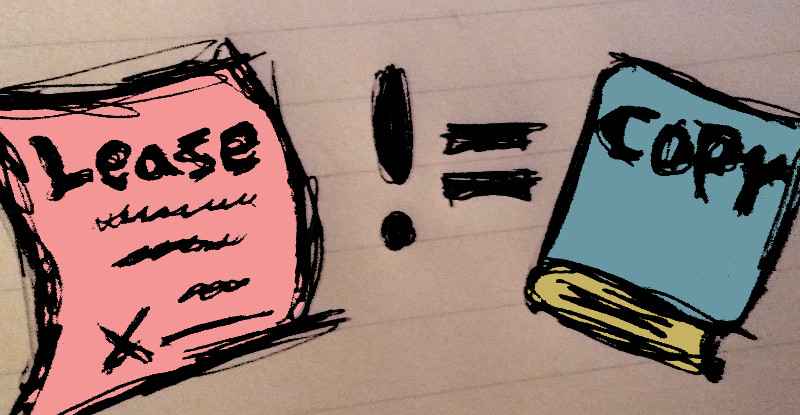Most software one buys these days is actually sold as a license to use a copy and not a right to copy itself. So ‘buying’ a game on Steam or office software from Microsoft is more like paying for an indefinite lease than buying a book at a physical bookstore.
Producers see this distinction as necessary because legally if one bought a right to a copy then–much like a book or car–it could be taken apart, changed, shared, and resold without their consent. Copying is especially easy with modern systems. And while copyright laws themselves would make unpaid-for copies illegal, it cannot restrict what else is done with them.
The rise of open source software with more liberal licenses, such as the General Public License, indicates many producers are choosing not to hide or restrict what is done with their creations. As someone who produces software for a living, I’m not sure how viable such licenses are since they remove much of the incentive to pay in exchange for the work.
As a consumer of software I find the licenses of companies like Steam and Microsoft restrictive. Especially worrisome is that they deny transferring; and therefore reselling. I also enjoy buying used copies of software and games at a discount rate. And while I don’t mind the idea of legal licenses of my productions being resold, allowing it while most do not would put me at a disadvantage.
Large portions of the software market use digital rights management to try to enforce the license terms. In my experience as a consumer it also gets in the way of using the products. It’s possible the rise of decentralized currencies like BitCoin will give rise to decentralized rights management.
Do you have an opinion? If so please leave a comment.
